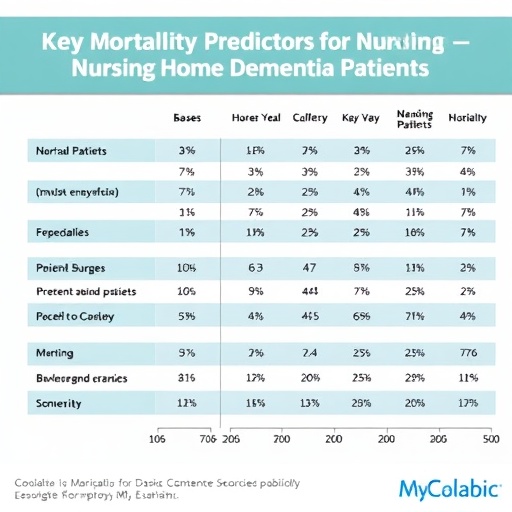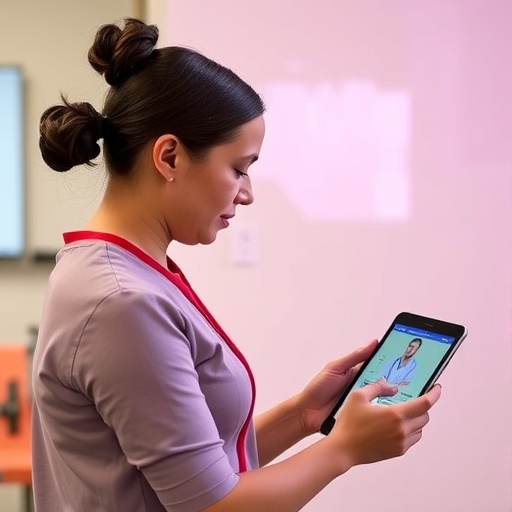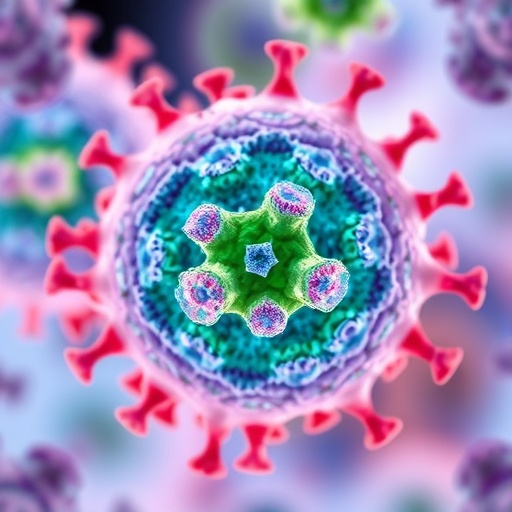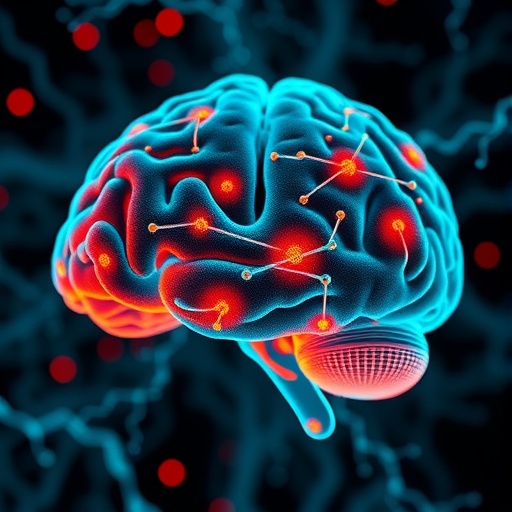PROTECT YOUR DNA WITH QUANTUM TECHNOLOGY
Orgo-Life the new way to the future Advertising by AdpathwayIn recent years, the human microbiome has emerged as a pivotal frontier in understanding health and disease, capturing widespread attention largely for its role in the gut. Surpassing gut-based research, scientists are now delving into lesser-known microbial communities residing in other body regions, particularly the oral cavity. A groundbreaking study led by Ashutosh Mangalam, PhD, professor of pathology at the University of Iowa, has uncovered profound alterations in the oral microbiome of individuals living with multiple sclerosis (MS). These findings highlight the oral ecosystem as a previously underappreciated site of immune-microbial interaction with significant implications for diagnosis and treatment of this debilitating autoimmune disease.
Multiple sclerosis is characterized by chronic inflammatory damage to the central nervous system, specifically targeting nerve cells in the brain and spinal cord. Despite advancements in managing symptoms and slowing disease progression, a definitive cure remains elusive. Prior research has established a link between MS and dysbiosis in the gut microbiome, prompting a natural curiosity about whether other microbiomes contribute to MS pathology. The oral microbiome, the second most diverse microbiome in the human body, encompasses a complex microbial community with documented roles in systemic inflammation and neurological conditions such as Alzheimer’s disease and rheumatoid arthritis. However, its relationship to MS had remained largely unexplored until now.
Utilizing high-resolution shotgun metagenomic sequencing combined with untargeted metabolomics, Mangalam’s multidisciplinary team conducted the most comprehensive genetic and metabolic profiling of the oral microbiome in MS patients to date. The investigators analyzed saliva samples from 50 individuals diagnosed with relapsing–remitting MS (RRMS)—the most common MS subtype—and compared them with matched healthy controls. This approach enabled an unprecedented compositional and functional snapshot of oral bacteria and their metabolites, revealing substantial microbial imbalances and metabolic shifts unique to the MS cohort.
Strikingly, the oral microbiomes of MS patients exhibited a marked depletion of beneficial early colonizers such as Streptococcus and Actinomyces species, which are critical architects of a stable and health-promoting microbial network. Concurrently, there was a conspicuous increase in pathogenic or pro-inflammatory bacteria, including Fusobacterium nucleatum, Porphyromonas gingivalis, and several species of Prevotella. These bacterial taxa are known for their capacity to exacerbate mucosal inflammation and disrupt immune homeostasis, suggesting a potential mechanistic link between oral dysbiosis and MS-associated neuroinflammation.
Metabolomic analyses provided further insights into the biochemical milieu accompanying these microbial changes. Notably, MS patient saliva showed significantly diminished levels of hypotaurine, a sulfhydrated amino acid derivative with potent antioxidant properties involved in cellular defense and nerve tissue protection. The reduced presence of hypotaurine hints at a compromised oral antioxidant status, which could exacerbate oxidative stress and neuronal injury intrinsic to MS pathology. This metabolic deficiency appears intricately tied to the altered bacterial composition, underscoring the functional interplay between microbial ecology and host metabolic pathways.
Beyond cataloging microbial taxa, the researchers applied a novel machine-learning algorithm known as topic modeling to discern microbial community structures or “networks” within oral ecosystems. This advanced analytical technique identified discrete groups of coexisting bacteria that cooperatively maintain oral homeostasis. Importantly, five major microbial communities were significantly depleted in MS patients, indicating a fundamental collapse of synergistic networks that underpin oral health. This breakdown likely amplifies microbial instability, fueling chronic inflammation and immune dysregulation central to MS disease processes.
Mangalam emphasizes that their integrative multi-omics strategy—melding microbial taxonomy, functional genomics, and metabolite profiling—provides an unprecedentedly granular view of how oral microbiota potentially orchestrate inflammatory cascades in MS. These discoveries considerably expand the conceptual framework of MS beyond classical gut-brain axis models, positioning the oral cavity as a critical and accessible immune interface with ramifications for disease onset and progression. The mouth, as a window into systemic health, offers a promising conduit for biomarker development and therapeutic innovation targeting microbial ecosystems.
One of the most compelling translational facets of this research is its potential to revolutionize MS diagnosis and monitoring. Unlike invasive procedures, saliva collection is simple, non-invasive, and easily repeatable, making it an ideal medium for clinical biomarker assays. The unique microbial signatures and metabolic profiles identified could lay the groundwork for saliva-based diagnostic tests that detect MS early or track disease activity in real-time. For instance, profiling reductions in hypotaurine levels or dysbiotic bacterial communities might serve as objective indicators of disease status or therapeutic response.
Furthermore, the oral microbiome’s accessibility presents exciting opportunities for novel therapeutic strategies. Traditional MS treatments focus on modulating the immune system or protecting neurons but do not address microbial contributors to disease. The ability to restore and rebalance oral microbial communities via targeted probiotics, prebiotics, or microbiome transplantation could usher in a new therapeutic paradigm. Such interventions might reconstitute beneficial early colonizers and suppress pathogenic species, thereby mitigating inflammatory triggers and improving clinical outcomes for MS patients.
This pioneering study is the product of an interdisciplinary collaboration spanning the University of Iowa’s Carver College of Medicine, College of Dentistry, College of Public Health, College of Nursing, and Holden Comprehensive Cancer Center. The team’s integration of expertise across pathology, genomics, bioinformatics, and clinical research enabled a sophisticated and holistic experimental design. Their efforts exemplify the power of convergent scientific approaches to unravel complex disease mechanisms and propel forward innovative solutions to unmet medical challenges.
Despite the groundbreaking nature of these findings, Dr. Mangalam and colleagues acknowledge critical questions remain. Longitudinal studies are needed to delineate causal relationships and temporal dynamics of oral microbiome changes relative to MS onset and progression. Furthermore, intervention trials deploying microbiome-modulating therapies will be essential to validate clinical efficacy and safety. Nonetheless, this research lays a robust foundational framework and invigorates a new avenue in MS research—one where the oral microbial community is no longer a bystander but a central protagonist.
In the broader context of autoimmune and neurodegenerative diseases, this work accentuates the importance of moving beyond compartmentalized views of human health. Microbiomes across multiple anatomical sites interact intricately with host immunity, metabolism, and neurological function. Understanding these complex ecosystems and their dysregulations in disease states will be pivotal for devising next-generation diagnostic tools and therapeutics. The University of Iowa’s study not only advances our grasp of MS pathology but also exemplifies a paradigm shift in biomedical research embracing the microbiome as a key determinant of human health.
As awareness of oral microbiome dysbiosis in MS spreads, public and clinical interest will surely heighten, potentially catalyzing broader efforts to incorporate oral health into comprehensive neurological care. This study underscores a transformative concept: the health of our mouths may hold vital clues and keys to combating diseases far beyond dental cavities—redefining how we perceive, diagnose, and treat complex disorders such as multiple sclerosis.
Subject of Research: People
Article Title: Multiple sclerosis patients exhibit oral dysbiosis with decreased early colonizers and lower hypotaurine level
News Publication Date: 20-Oct-2025
Web References:
https://www.nature.com/articles/s41522-025-00787-7
http://dx.doi.org/10.1038/s41522-025-00787-7
Image Credits: University of Iowa Health Care
Keywords: Human microbiota, Multiple sclerosis
Tags: Ashutosh Mangalam researchchronic inflammation and MSdysbiosis and neurological conditionsimmune-microbial interactions in MSimplications of oral microbiome for MS treatmentmicrobial communities in human bodymicrobiome research beyond gut healthoral ecosystem in autoimmune diseasesoral health and systemic inflammationoral microbiome and multiple sclerosissignificance of oral microbiome in healthUniversity of Iowa microbiome study


 4 hours ago
1
4 hours ago
1





















 English (US) ·
English (US) ·  French (CA) ·
French (CA) ·